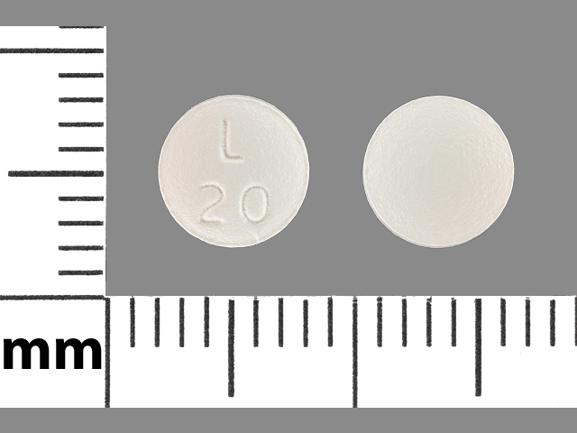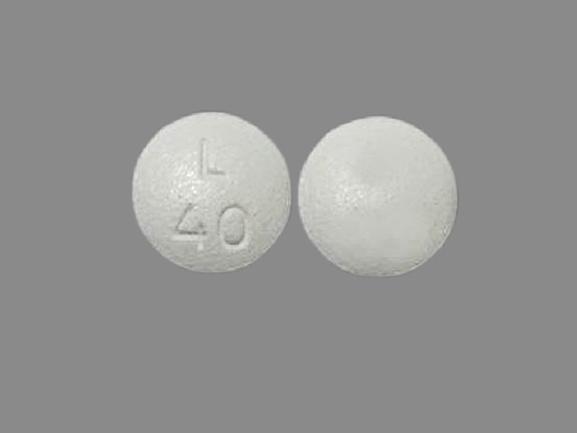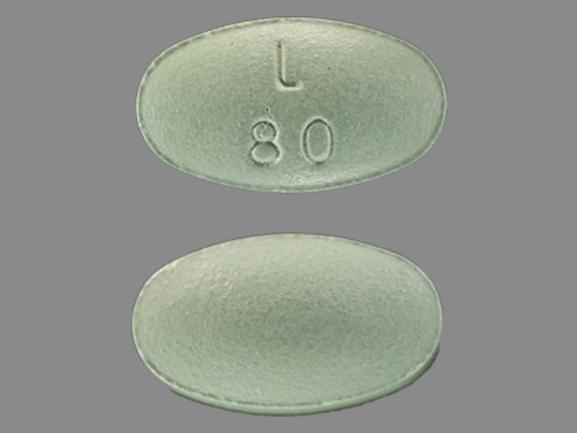
What is Latuda?
Latuda is an antipsychotic medicine. It works by altering the effects of brain chemicals.Latuda can be used to treat schizophrenia among adults and adolescents who are over 13 years of age.Latuda can also be used to treat depression episodes associated with bipolar disorder in adults and children older than 10 years.
Warnings
Latuda has not been approved for the treatment of psychotic disorders related to dementia. Lurasidone can increase the risk of death in older adults who have dementia-related psychosis.Latuda can trigger suicidal thoughts in young people. Be alert to any changes in mood or symptoms. Notify your doctor of any new symptoms or worsening symptoms.Tell your doctor before taking Latuda if you suffer from liver or kidney disease, high blood pressure, or heart rhythm problems. Also, let them know if you've had a heart attack, stroke, or have high cholesterol, low WBC counts, seizures, Parkinson's, diabetes, or any other disease.Certain medicines may interact with lurasidone, and they should not be taken together. Inform your healthcare provider about any medicines you are using now and those you plan to use in the future.You may be more sensitive than usual to extreme temperatures, such as those that are very cold or hot. Avoid becoming too hot or dehydrated. Be sure to drink plenty of fluids during hot weather or when exercising. You are more likely to dehydrate and become dangerously hot when taking this medication.Latuda can impair your reactions or thinking. You should be careful when driving or doing anything else that requires alertness. You may get dizzy if you stand up too quickly from a seated or lying position. To avoid a fall, get up slowly.Alcohol can increase the side effects caused by lurasidone. Call your doctor immediately if you experience a high fever, tremors, or uncontrollable movements in your arms, legs, eyes, lips, face, or tongue. You may also feel confused, have a fast or pounding pulse, be dizzy or faint, or have a feeling that you could pass out.
Similar/related drugs
Caplyta, Quetiapine, Lamotrigine, Abilify, Seroquel, Aripiprazole, and Olanzapine
Before you take this drug
If you have an allergy to lurasidone, Latuda should be avoided.
Many drugs interact with each other and can have dangerous side effects. Lurasidone should not be taken with certain drugs.
- Antifungal medicine such as ketoconazole or voriconazole;
- Clarithromycin, rifampin, or an antibiotic.
- An antiviral, such as ritonavir.
- St.
- Seizure medicines such as carbamazepine and phenytoin
Latuda has not been approved for the treatment of psychotic disorders related to dementia. Lurasidone can increase the death risk for older adults who have dementia-related conditions.
Tell your doctor immediately of any of the following symptoms:
- Heart disease or stroke
- High or low blood pressure
- High cholesterol (or triglycerides, a type of fat found in the blood);
- Diabetes or high blood glucose (in yourself or in your family);
- A seizure;
- Liver or kidney disease
- Low white blood cell counts
- Tests of abnormal hormone function (thyroid and pituitary glands);
- Breast cancer
- Suicidal thoughts and actions.
Lurasidone can cause suicidal thoughts in some people. Regular visits to your doctor are required to monitor your progress. You or your family members should be aware of any changes in mood or symptoms.Antipsychotic medication taken in the last three months of pregnancy can cause respiratory problems, feeding difficulties, or withdrawal symptoms for the newborn. If you get pregnant, tell your doctor right away. Do not stop taking Lurasidone without consulting your doctor.You may find your name on a registry for pregnant women to monitor the effects of Lurasidone.You may not be able to breastfeed your baby while taking this medication. You should ask your doctor if there are any risks.Latuda has not been approved to treat schizophrenia by anyone younger than 13. Latuda is not approved for depression by anyone younger than 10 years old.
How to take Latuda?
Follow the instructions on your prescription label and read all medication guides or instruction sheets. Read all the instructions on the prescription label.Latuda is best taken with a meal (at least 350 calories).Blood tests may be required frequently.You may need to wait several weeks for your symptoms to improve. Continue to take the medication according to the instructions. If your symptoms don't improve or worsen while taking Latuda, call your doctor.Do not suddenly stop taking this medication. You may experience other complications if you stop suddenly.Latuda can make you more susceptible to dangerous dehydration and overheating. Be sure to drink plenty of fluids in hot weather or when exercising. You might also be more sensitive than usual to extremes of temperature (cold or hot).Store away from heat and moisture at room temperature.
What happens if I miss the dose?
If you are almost due for your next dose, skip the missed one. Never take two doses of the same medicine at once.Refill your prescription before you run out.
What happens if I overdose?
Call 1-800-222-1222 for poison help or seek immediate medical attention.
What should be avoided?
Don't drink alcohol. Alcohol can have dangerous side effects.Do not drive or operate machinery until you are sure how the medicine will affect your body. You may feel dizzy if you get up quickly from a lying or sitting position. Drowsiness or dizziness can lead to accidents or serious injuries.Grapefruit and grapefruit juice can interact with Lurasidone to cause unwanted side effects. Latuda should not be taken with grapefruit products.
Side effects of Latuda
If you experience any of the following: hives, difficulty breathing, swelling of your lips, face, tongue, or throat, or if you notice any of these symptoms, seek emergency medical attention.You should tell your doctor if any symptoms worsen or change, including changes in mood or behaviour, anxiety, panic attacks, or trouble sleeping. Also, you may feel more impulsive, agitated, hostile, aggressive, or restless.Long-term or high doses of Latuda may cause a serious disorder of movement that is not reversible. The symptoms of this disorder are uncontrollable movements of the lips, tongues, eyes, faces, arms, or legs. This disorder is more likely to occur if you have been using lurasidone for a long time, particularly if you're a woman or older person.
If you experience:
- Any new or unusual muscle movements that you cannot control
- A feeling of lightheadedness, as if you could pass out.
- A seizure (convulsions);
- Women with irregular menstrual cycles, breast or vaginal changes, or nipple discharge
- Impotence (in men), breast swelling
- Trouble swallowing
- Manic episode, racing thoughts, and increased energy.
- Low counts of white blood cells—fever, chills, and mouth, skin, throat, or cough sores;
- High blood sugar: increased thirst, increased urination, and hunger; dry mouth or fruity breath smell;
- Severe nerve system reaction: stiff muscles (rigid), high fever, sweating and confusion, rapid or irregular heartbeats Tremors. Feeling like you may pass out.
Latuda may cause the following side effects:
- Drowsiness;
- Weight loss
- Tremors, muscle stiffness, and slow muscle movements
- Feeling restless or unable to stay still.
- Nausea, vomiting;
- Runny nose;
- Sleep problems (insomnia).
There may be other side effects. For medical advice on side effects, call your doctor. Contacting the FDA in regards to reporting side effects can be done at 1-800-FDA-1088.
Interaction with other drug
Do not use Latuda in combination with any other drug that can slow breathing
Inform your physician of all of the medications you are currently taking. Lurasidone can be affected by many drugs, including:
- Depression or psychotic episodes
- Sleep problems (insomnia);
- High blood pressure or a heart rhythm problem
- Swelling or inflammation
- Seizures;
- Parkinson's disease.
Lurasidone may interact with many other drugs. These include prescription and non-prescription medicines, vitamins, and herbal products. This list does not include all drug interactions.







